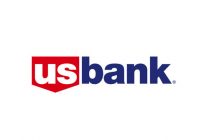
The New Years’ ball has dropped, and 2013 is officially underway. While for many the start of a new year marks a time for new beginnings, for employers it marks the final countdown to make decisions and implement changes necessary to comply with the major provisions of the Patient Protection and Affordable Care Act (i.e., health care reform) that take effect on January 1, 2014. Employers must prepare for the 2014 changes, but in doing so it can be easy to forget the administrative requirements that take effect this year. This summary covers the top five requirements employers must remember in 2013.
1. Report the Cost of Employer-Sponsored Health Insurance
Filing Forms W-2 is not a new dance for employers. However, starting in 2013 employers must include information about the cost of their employer-sponsored health insurance on their Forms W-2. Transitional relief allows employers who filed less than 250 Forms W-2 for 2011 to avoid the requirement for now, but even smaller employers will need to keep an eye on the issue because this relief may be fleeting. Health care reform requires employers to include on Forms W-2 the amounts paid by both the employer and the employee for major medical coverage (which includes dental and vision, unless covered under a stand-alone plan). While many employers have already changed their Forms W-2 reporting practices to meet this new requirement (since the distribution date for Forms W-2 for 2012 is January 31, 2013), for those employers living on the administrative edge, the IRS offers guidance to satisfy this requirement in its Notice 2012-9 (available at http://www.irs.gov/pub/irs-drop/n-12-09.pdf).
Looking forward, employers must continue to monitor the W-2 reporting requirements, since many of the exclusions for W-2 reporting are transitional and may not apply in future years.
2. Provide a Summary of Benefits and Coverage
For employers sponsoring health care plans, health care reform requires that plan sponsors distribute new disclosures to plan participants and beneficiaries enrolling or re-enrolling in a health plan. The disclosures must be made in a Summary of Benefits and Coverage (“SBC”) notice. Among other information, SBCs must include information about covered health benefits, out-of-pocket costs, and in- and out-of-network providers. For individuals enrolling through open enrollment, the requirement applies as of the employer’s first open enrollment period beginning on or after September 23, 2012. For individuals enrolling other than through open enrollment, the requirement applies as of the first day of the employer’s first plan year beginning on or after September 23, 2012.
SBCs must be provided at open enrollment (renewal), at initial enrollment, at special enrollment and upon request. For employers sponsoring health plans that do not operate on a calendar year and have therefore not yet been required to distribute an SBC, the Department of Labor provides a template (available at http://www.dol.gov/ebsa/pdf/SBCtemplate.pdf).
3. Implement the Flexible Spending Account Limits
Starting on January 1, 2013, the amount of pre-tax dollars an employee can defer for medical expenses under a health flexible spending arrangement (“FSA”) is limited to $2,500. This limit does not apply to the amount permitted for reimbursement under an FSA for dependent care or adoption care assistance, to health savings accounts (HSA) or health reimbursement arrangements (HRA).
Employers offering health FSAs must amend their plan documents to reflect this new limit and must correct any employee deferral elections made which exceed this amount. While the IRS has stated that employers may adopt retroactive amendments to impose the $2,500 limit before December 31, 2014, these changes should be made as soon as possible.
4. Withhold Additional Medicare Tax
Effective January 1, 2013, employers must withhold Additional Medicare Tax from certain employee wages and other compensation. Employers are required to withhold 0.9 percent of Additional Medicare Tax for amounts earned by any employee which exceed $200,000 in a calendar year, regardless of the employee’s filing status. Additional Medicare Tax must be withheld once the employer has paid wages or compensation exceeding $200,000 to a single employee in a calendar year, so employers should remain mindful of employee compensation as it nears this threshold.
This withholding obligation exists even though an employee may not be liable for Additional Medicare Tax based on filing status (for example, the combined total of the employee’s and the employee’s spouse’s wages do not exceed the $250,000 threshold for married couples filing jointly). Employers required to withhold Additional Medicare Tax need neither notify the employee when the employer begins withholding Additional Medicare Tax nor match Additional Medicare Tax.
5. Provide Information about the Health Insurance Exchanges
Starting March 1, 2013, employers must provide notice to employees (existing and newly hired) about the health insurance exchanges set to begin operation in 2014. Little guidance exists about the notice requirement and no sample notice has been published, but the notice must inform employees: (1) of the existence of the exchanges, (2) how to contact the exchanges for assistance, (3) if the employer’s plan provides inadequate coverage, and (4) that employees may lose employer-offered health benefits by purchasing insurance through the exchanges. While we expect a sample notice prior to March 1, employers wishing to get a jump on the issue can begin drafting based on the existing guidance.
By satisfying these top five administrative requirements for 2013, employers can direct their focus on preparing for health care reform’s 2014 requirements.
Valerie Berg is an attorney with Barran Liebman LLP. She specializes in employee benefits. Contact her at 503-276-2144 or vberg@barran.com.




